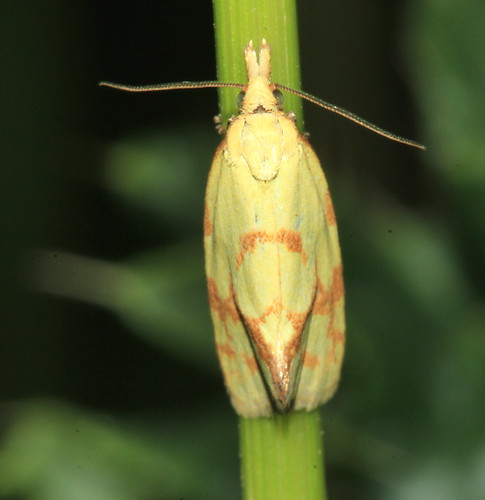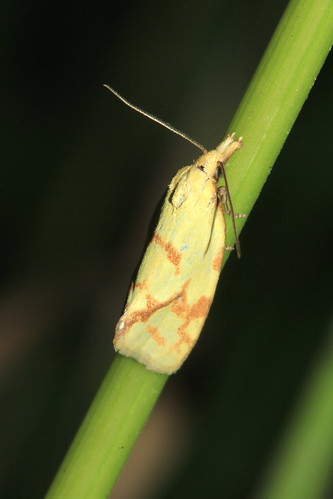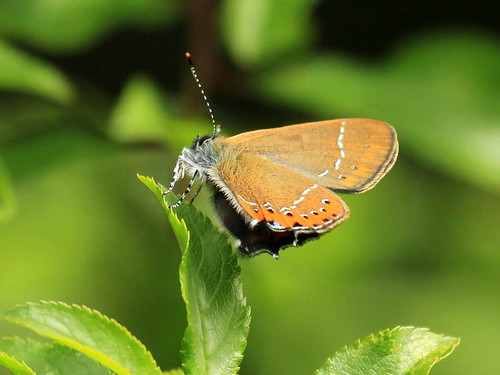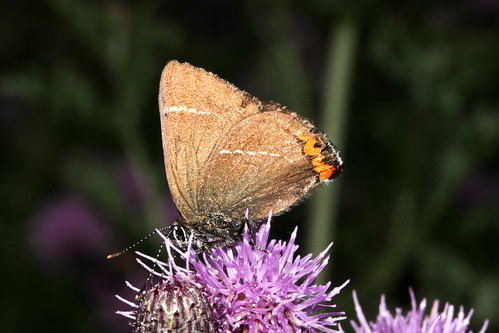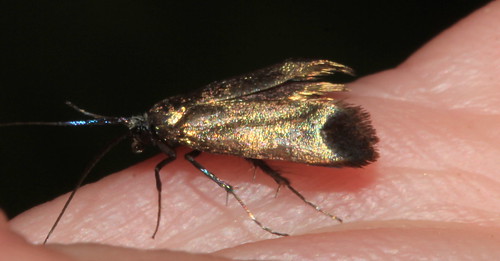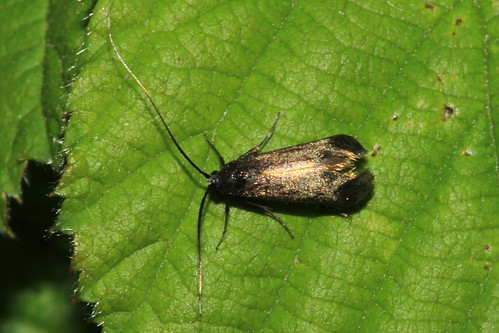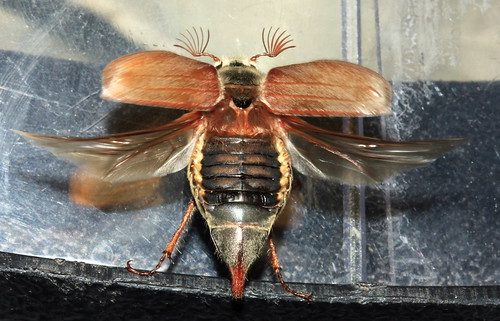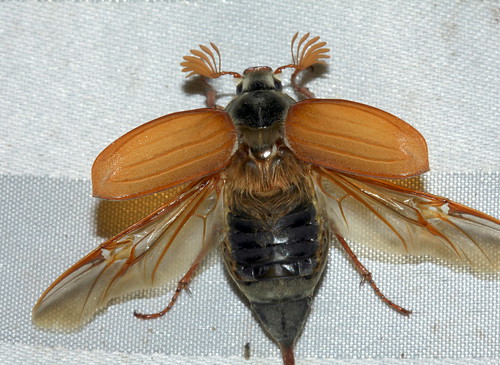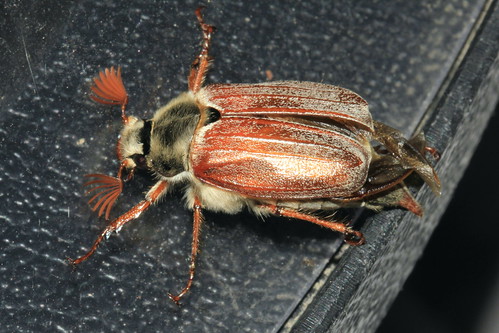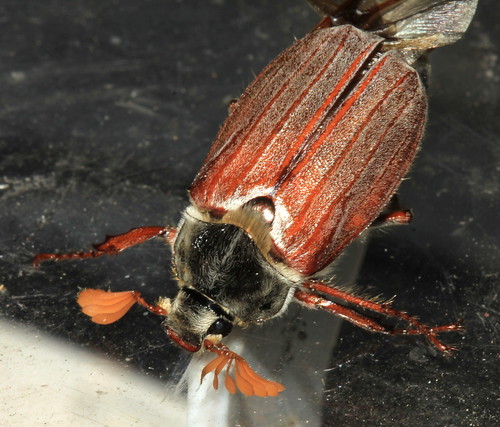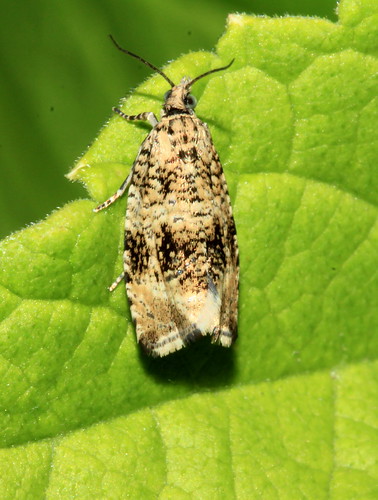There are only two members in this family so making ID easy One of two UK treehoppers. The other Gargara genistae is associated with broom. It is smaller than C. cornutus, lacks the horn-like projections on the pronotum and has a shorter dorsal spine.

"Membracidae-Centrotus-cornutus". Licensed under CC BY-SA 3.0 via Wikimedia Commons.
Length circa 10 mm You can see the dorsal spine on the first image
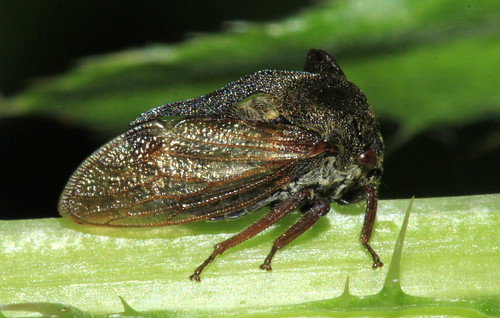
You can see the pronotal projections absent in Gargara genista
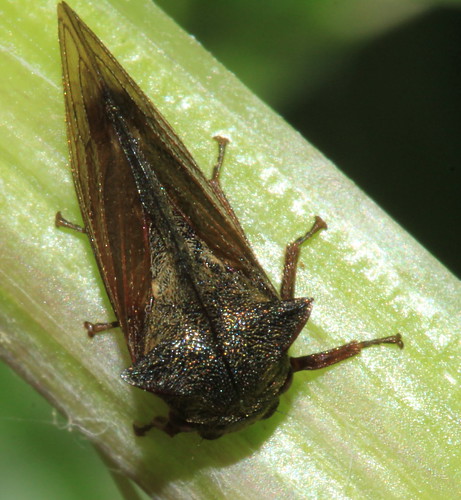
This image shows both key features
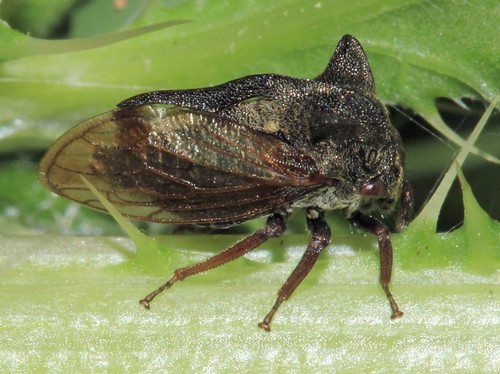
Adult: April-August
